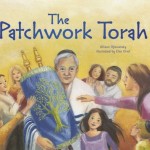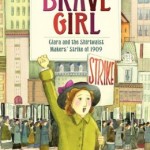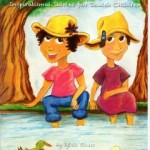 Rita Frischer Special to The Jewish Sound
Rita Frischer Special to The Jewish Sound
As the leaves turn, we turn — from summer’s indulgences to the crisp demands of fall as school resumes and our work schedules intensify. At the same time, Judaism asks us to turn inward as well. We practice teshuvah, returning to our best selves and repenting our mistakes, as we anticipate Yom Kippur and our new beginnings.
Children’s books may celebrate these holidays directly or indirectly. Kar-Ben Publishing offers us new titles that do both. “What a Way to Start a New Year! A Rosh Hashanah Story” by Jacqueline Jules, cleverly illustrated by Judy Stead, finds Dina and her family surrounded by boxes, having just moved to a new town where they miss the security of their old home. Imagine having to eat pizza alone instead of having honey cake with your former neighbors and friends! What a relief when the family is invited to services at the new and unfamiliar shul, where the melodies and the rituals make them feel comfortable even before new friends invite them home for brisket and apple cake for a change — signifying that something new can be delicious. (Ages 3-8)
“Apple Days: A Rosh Hashanah Story” by Allison Sarnoff Soffer, illustrated by Bob McMahon, again brings up themes of new beginnings (a new baby) and changes in a special family tradition. Katy and her mom always celebrate Apple Day, picking apples and making applesauce together, as preparation for the holiday. When Mom leaves to help with Aunt Leah’s new baby, Katy is very disappointed until, with the help of her friends and a little assistance from her dad, she surprises herself and her delighted mother, by making applesauce for the holiday happen after all.
 It’s not a children’s book as such, but if you want to celebrate Apple Days in your own kitchen with your own children, may I recommend “The Delectable Apple” (Chronicle Books) by Kathleen Desmond Stang, appetizingly illustrated by Lynne Riding. Besides recipes featuring apples (some not kosher), Stang has provided a brief overview of apples, a history of apples in America and elsewhere, a bit of science, and a lot of insight into which apples to use for what. I toss in this potential hostess gift for the baked goods particularly.
It’s not a children’s book as such, but if you want to celebrate Apple Days in your own kitchen with your own children, may I recommend “The Delectable Apple” (Chronicle Books) by Kathleen Desmond Stang, appetizingly illustrated by Lynne Riding. Besides recipes featuring apples (some not kosher), Stang has provided a brief overview of apples, a history of apples in America and elsewhere, a bit of science, and a lot of insight into which apples to use for what. I toss in this potential hostess gift for the baked goods particularly.
Back to children’s books that are more indirectly linked to the concepts of doing good: Sylvia Rouss is the author of the Sammy Spider series, the most recent of which is “Sammy Spider’s First Mitzvah,” illustrated by Katherine Janus Kahn, in which Sammy observes the mitzvah of visiting the sick when his buddy Josh gets a cold. However, as we move gratefully out of a season plagued even more than usual by fires throughout the West, I was especially moved by one story in “A World of Blessings: Inspirational Stories for Jewish Children,” also by Sylvia Rouss (Apples & Honey Press). “The Rabbi and the Firefighters” is based on a true event during the 2007 California wildfires. An exciting place to live, California, but this year in Washington, too, we are grateful for the bravery of firefighters.
However, there are other kinds of bravery and other ways of making a new beginning. “Brave Girl: Clara and the Shirtwaist Makers’ Strike of 1909,” by Michelle Markel, illustrated by Melissa Sweet (Balzer & Bray), is especially apt when we see the minimum wage struggle, first passed here in Washington, spreading across the country. It tells the story of Clara Lemlich, a young woman immigrant who arrived in America who doesn’t speak English, with no realization of how hard life would be working on a sewing machine in a factory, nor how unfairly the factory owners treated women workers like her. But she learned. She went to night school, learned English, and when she had had enough, she fought back. Believing they had to stand together and fight, she eventually led the largest walkout of women workers in the country’s history. FYI, I also saw that Seattle Public Library has a DVD of this story available (ages 4-9).
“The Patchwork Torah” by Allison Ofanansky, illustrated by Elsa Oriol, is the perfect book for Simchat Torah, demonstrating clearly that Torah is not something that can be disposed of, but something that can be renewed and brought back to life. David, who learned his life’s work as a sofer from his grandfather, inherits several Torahs damaged by war, fire, and flood, and saves them, hoping one day to repair them so they can be used again. In Seattle, where we recycle everything we possibly can, we will surely welcome the sensible suggestion young Leah makes and be happy with its execution.
Kirkus Reviews, a much respected review journal, said: “This book will be read more than once, and that seems only appropriate, as Jews are never finished reading the Torah…Readers may close the cover thinking that a picture book — like a Torah scroll — can be essential.”
I’ve never heard it said better.